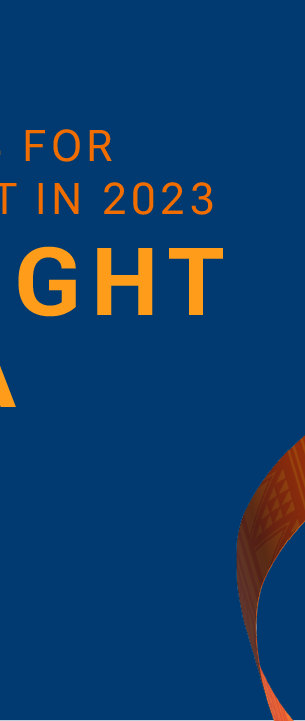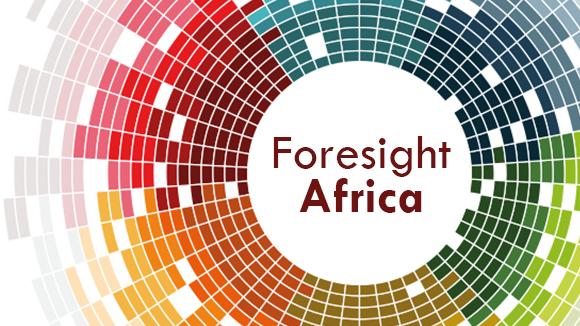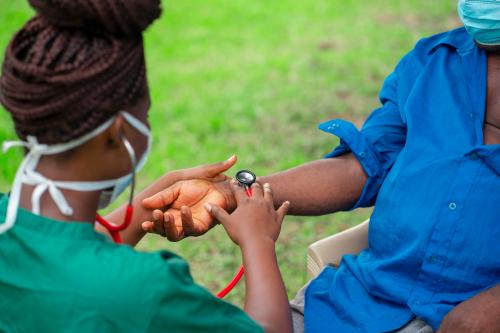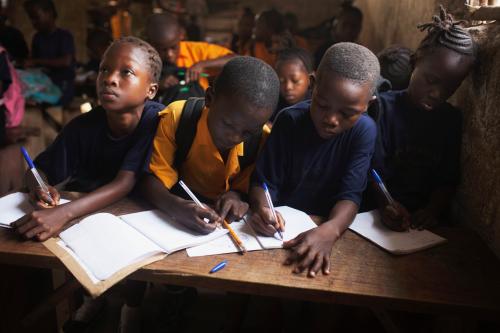Below is a viewpoint from the Foresight Africa 2023 report, which explores top priorities for the region in the coming year. Read the full chapter on health.
 The COVID-19 pandemic revealed that coordination and collaboration between countries on surveillance and epidemic intelligence were poor and led to ineffective and inefficient decision-making. This poor collaboration was not limited to countries with poor capacity but applied also to countries with advanced capacities and good socio-economic relations.
The COVID-19 pandemic revealed that coordination and collaboration between countries on surveillance and epidemic intelligence were poor and led to ineffective and inefficient decision-making. This poor collaboration was not limited to countries with poor capacity but applied also to countries with advanced capacities and good socio-economic relations.
While many countries generate data, the potential for meaningful analysis remains underutilized as the data are collected in ad hoc ways, with differing standards that are not sufficiently connected to answer complex questions. The pandemic also revealed that channels of coordination for countries to learn from each other and produce global models, or share national insights was limited. Moreover, many countries have not prioritized the development of public health surveillance and intelligence systems on account of limited capacities and scarce resources.
Clearly, there are immense benefits to be gained from better sharing of data related to health risks, vulnerabilities, and outcomes. The sharing of data can facilitate timely response, robust research, and overall, better-informed policy outcomes. Despite these benefits, several barriers and challenges to data sharing persist.
In response to an increased number of disease outbreaks affecting African countries, the World Health Organization (WHO) Africa Regional Office (AFRO) introduced the Integrated Disease Surveillance and Response (IDSR) framework in 1998. IDSR was introduced to strengthen data collection, analysis, and use in African countries. The overall goal is to improve the detection and response to the leading causes of illness, death, and disability in the region. Regrettably, this strategy never received the due investments it needed, and implementation was very poor. Both local and global resource streams favored vertical disease programs over an integrated approach. Nevertheless, in some countries, its introduction led to improvements, including improved timeliness and completeness of surveillance data, increased national-level review, and better use of surveillance data for outbreak preparedness and response.
In addition to data on disease occurrence, and outcome, there is also a complex web of interconnected biological, public health, and economic factors that contribute to the emergence and spread of diseases. Yet, data collected from these other drivers are often not systematically connected or shared with health data, leading to limited opportunities to determine their impact on risk. For example, in many African countries, there are limited platforms for data sharing and cross-sector analysis between human and animal health sectors, despite the increased occurrence of zoonotic diseases.
Several countries in Africa are at different phases in building their data collection, analysis, and broader epidemic intelligence capabilities. Many are in the process of digitalizing their surveillance systems. However, these processes are proceeding in an organic, uncoordinated manner.
Several countries in Africa are at different phases in building their data collection, analysis, and broader epidemic intelligence capabilities. Many are in the process of digitalizing their surveillance systems. However, these processes are proceeding in an organic, uncoordinated manner as countries make critical decisions on what software and hardware to use, without getting appropriate strategic and technical advice.
The WHO through its new Pandemic and Epidemic Intelligence Hub in Berlin, working in collaboration with the Africa Regional Office (AFRO) is putting together processes, guidelines, and tools to support African countries in developing their surveillance and intelligence infrastructure. A peer-to-peer learning environment will also be created and nurtured to enable sharing between countries.
Several African countries face competing priorities—from frequent infectious disease outbreaks to an increasing prevalence of non-communicable diseases, as well as challenging socio-economic indicators. The available resources are limited, and areas such as surveillance system and epidemic intelligence strengthening are underresourced. Factors such as the limited availability of health workers and infrastructure often affect the ability to collect, analyze, report, and use data.
Despite the challenges, there remains immense potential for the region. The increased focus on these capabilities by the WHO Hub for Pandemic and Epidemic Intelligence, and the growth of regional health organizations such as the Africa CDC, present an opportunity to strengthen epidemic intelligence in the region. In addition, recognizing the challenges facing African countries, the Hub is developing a collaborative intelligence approach clustered around three activities: Connect data, solutions, and communities of practice globally; innovate solutions and processes; and strengthen capabilities for forecasting, detection, and assessment of risks to provide actionable insights for prevention, preparedness, response, and recovery from health threats and emergencies.
The future of public health in Africa, and indeed across the world, rests in large part on the ability of countries to leverage the use of data through sharing and linking data and learning from each other.
The Brookings Institution is committed to quality, independence, and impact.
We are supported by a diverse array of funders. In line with our values and policies, each Brookings publication represents the sole views of its author(s).








Commentary
Building Africa’s capacity for pandemic and epidemic intelligence
May 9, 2023